- Home
- Philip Pullman
Two Crafty Criminals! Page 13
Two Crafty Criminals! Read online
Page 13
“You probably would,” said Mr. Whittle. “Look, I’m going to close up now, because it’s time I went home. It’s been a pleasure talking to you, Fred. I’m only sorry about the Kaminsky family. What a tragedy!”
“Yes,” said Benny distantly. He was beginning to regret the falling-roof story. “Course, it might not have been them after all,” he added. “They were squashed so flat, it was hard to tell. It might’ve been a different family, and someone who just looked like Benny’s face sticking out.”
“Yes, it might,” said Mr. Whittle. “And there’s a lot of people look like Benny, after all. You look a bit like him yourself. You be careful down those stairs, now.”
He closed the door of the pigeon loft, which had an ordinary latch and no lock, and the two of them went down the iron staircase to the alley. Mr. Whittle turned to Benny, shook hands, and wished him good evening before strolling off. Benny watched him thoughtfully.
He might have been downcast, because Mr. Whittle was plainly not the thief after all, so they had to start again. On the other hand, he liked Mr. Whittle, and he was glad to find him innocent. Even the fact that he’d been anxious about something was clear now—he’d been worried about his pigeon; and if he wasn’t the thief, then someone else undoubtedly was. And that was worth knowing.
He was about to go back to the hideout and get out of his disguise, which was getting hotter and more uncomfortable by the minute, when he suddenly realized he hadn’t got the bowler hat. Of course! It had come off when he was acting getting squashed.
He scratched his floury head. His sister Leah’s young man Joe had taken a lot of persuading to lend his hat, and Benny didn’t fancy the trouble he’d be in if the hat wasn’t returned in good time—and in good shape too, come to that. He’d have to go back up and get it.
He climbed the staircase again. Not wanting to waste the chance, he became an albatross trainer climbing a wild cliff face to the albatross loft in order to send his fastest albatross on a desperate mission across the Atlantic. He struggled against the wild wind and the lashing rain, clawing his way to the rocky summit of the cliff and crawling on his stomach across the storm-beaten grass in order to avoid being swept off. He reached the albatross loft and snatched his hat, gasping with effort, lifted the latch, and fell full-length inside, panting.
The albatrosses shifted on their perches and cooed anxiously.
Benny lay there for a minute to recover from the broken leg he’d sustained in a fall from halfway up the cliff. Time to feed the albatrosses, he thought. He gave each of them a haddock, and then rummaged behind the sack of birdseed for the special waterproof message-pouch he was going to fix to the strongest albatross.
As his hands felt around in the darkness, he suddenly stopped and stood up.
Everything had gone silent and still. The albatrosses were forgotten. Benny’s eyes, wide open, stared down past the sack of birdseed as if they couldn’t believe what was there.
Then he bent down again and carefully moved the sack away, and it was true, he hadn’t dreamed it: behind the birdseed was another sack, the top hanging open, and inside it was the faint gleam of silver. Great cups and bowls and plates, and in the middle a solid-silver gas-fitter’s wrench on an ebony plinth surmounted with silver laurel leaves. It was the loot from the robbery, and Mr. Whittle had been hiding it after all.
Benny shut the door of the pigeon loft behind him and crept to the iron staircase, looking down to make sure the alley was clear. Seeing no sign of Mr. Whittle, he cautiously climbed down, tiptoed out of the alley, and ran for the hideout as fast as he could.
He dodged through the stable, avoiding the automatic kick from Jasper the bad-tempered horse, clambered up the ladder, and found the hideout empty, to his relief. He took off the suit and rubbed his face on the lining of the jacket to get rid of the mustache, and succeeded, mostly. The suit itself was a little used-looking, mainly from being crawled across the roof in. He could brush it later, if he found a brush. The main thing was to get rid of the flour in his hair. It was no good washing it out; he’d tried that before, and the stuff turned into a very effective glue. For weeks afterwards he’d gone about with hair that made a light knocking sound when you tapped it, like cardboard, and mighty uncomfortable it was too, not to mention noisy. So he spent some time now shaking his head and running his fingers through his hair and rubbing it on the suit’s trouser legs until it was more or less its normal dingy brown again.
Then he prized a “Monstroso” Giant Peppermint Humbug away from the paper bag it was sticking to, wedged it firmly into his cheek as an aid to thought, and flung himself on the heap of straw in the corner to work out what to do next.
He hadn’t been there long when the trapdoor lifted and Thunderbolt peered in at him, looking excited.
“Here!” he said. “Dick’s gonna do it! He’s got a love secret from Orlando the Strong Man, and he’s gonna ask Daisy tonight! We’re gonna win the bet after all!”
He clambered up, followed by the twins. Benny frowned austerely.
“And Snake-Eyes don’t know about Orlando’s love secret, so he’s offering five to one against Dick now,” said Angela. “It’s worth borrowing a fortune for!”
“Imagine that,” said Thunderbolt, his spectacles glowing. “Five shillings for a one-bob stake! Cor …”
“Mmm,” said Benny. He shifted the humbug from one cheek to the other, gazing into the middle distance.
“What’s the matter?” said Angela.
“You ain’t put some money on old Horspath?” said Zerlina suspiciously.
Benny gave her a cold look. Finally the others realized that he had something else on his mind, and remembered what he’d been doing.
“How’d you get on with following Mr. Whittle?” said Thunderbolt.
Benny took out the humbug, balanced it carefully on one knee, and began to explain. He had never had a better audience; they sat wide-eyed and openmouthed.
“You sure?” said Thunderbolt when he’d finished.
“You saw all of it? All that loot?” said Angela.
“It wasn’t just tools for pigeon breeding?” said Zerlina.
“You don’t breed pigeons with gas-fitters’ wrenches made of solid silver,” said Benny scornfully. “Nor you don’t need blooming great dishes half a yard across to feed ’em with, neither. I fed ’em meself with a little tin cup about that big. Mr. Whittle let me do it.”
“But why would he let you do that if there was all that loot stashed behind it?” said Thunderbolt. “It’s funny, him letting you in there at all.”
“That’s what I think,” said Benny. “But I tell you one thing, I got a plan coming. I can feel it. I just need to work out the details. But it’s a good un. It’s one of the best I ever had. In fact, it’s a blooming cracker.”
Thunderbolt looked at the twins, who looked apprehensively back at him and then at each other. They knew the signs. Benny’s eyes were remote, as if he were staring at something too far off for the others to see, and his lips were moving faintly.
“Yeah,” he said after a minute or so, detaching the humbug from the dusty fibers of his trouser leg before tossing it into the air and catching it in his mouth with a gulp. “This is gonna be a stunner. It’s gonna be a corker. It’s gonna be a knockdown sockdologer!”
“But—” Thunderbolt began.
Benny held up his hand. “I need to get it right first. Get all the details straight. You better leave me alone for now, else I’ll get it wrong. I need silence and being alone. Go on, hook it. I’ll find yer when I’ve got it all worked out.”
“You don’t want to put summing on Dick at Snake-Eyes’s five to one?” said Angela, halfway out the trapdoor.
“No. I got nothing left anyway. Go on, I mean it; I want to think about it on my own.”
So the others left. Benny heard Zerlina enthusiastically explaining to Thunderbolt on the way down that if he placed his next trigonometry shilling with Snake-Eyes Melmott as well as the first o
ne, he’d have a total profit of seven shillings when Dick finally triumphed. Her eager voice died away as the others went out through the stable, and then there was silence, broken only by the continual buzz of flies around old Jasper below, the swish of his irritable tail, and the high-pitched, almost electrical hum that Benny felt must be coming from his own mighty brain at full stretch.
Daisy had been puzzled and a little hurt by the fact that she hadn’t seen Dick since the unfortunate incident in the Music Hall. She understood what had happened: the poor boy had got his words mixed up. It wasn’t his fault he wasn’t a smooth-tongued genius. But she couldn’t wait forever, and meanwhile Mr. Horspath was being so charming and attentive … He had brought her a box of chocolates the day before, and he’d spent three-quarters of an hour listening to Daisy’s mother telling him about her rheumatism, and he did have nice wavy fair hair, and …
And he was coming round that very evening to have a meat tea with the family. When he’d accepted Mrs. Miller’s invitation, there was a kind of a warm meaningfulness in the way he smiled at Daisy that made her heart give a sickly lurch, as if it didn’t know whether to go up or down.
So all that Thursday afternoon, as she wrapped cakes and sold biscuits and buttered buns in the bakery where she worked, she kept thinking of Dick and sighing, and thinking of Mr. Horspath and smiling, and then smiling about Dick and sighing over Mr. Horspath, till the silly girl didn’t know who she loved and who she didn’t. All she knew was that she must be in love with someone, or she wouldn’t feel so miserable.
Thunderbolt, meanwhile, was undergoing the most powerful temptation of his life. He was on his way to the Whittles’ house for his next trigonometry lesson with another shilling in his pocket, and there, outside the Rose and Crown, stood Snake-Eyes Melmott himself, talking to a couple of jockey-looking men.
The great bookmaker was a stout, prosperous, rosy-cheeked man, with a tight checked suit, a curly-brimmed bowler hat, and a great gold watch chain across his middle. He had an air about him of cigars and gold sovereigns, of horses and whiskey, of large dinners and boxing rings.
Thunderbolt slowed down as he went past. Then he stopped. Then he went on, more slowly. Then he turned round.
Snake-Eyes Melmott was looking at him benevolently.
“How do, young Thunderbolt,” he said, and his voice was as rich as a plum pudding.
“How do, Mr. Melmott,” said Thunderbolt. “I was just wondering …”
“Ah, yes? Anything I can help you with?”
“Er—Dick Smith—you know, the business with Daisy, and …”
“Mm-hmm.”
“I heard you were offering five to one.”
Snake-Eyes Melmott put his tongue in his cheek, looked around roguishly, leaned forward as far as his stomach would let him, and lowered his voice confidentially to say: “Seeing as you’re a good customer, Thunderbolt, and seeing as I’ve heard from the stable that Mr. Horspath’s making a very good showing, I can offer you six to one, my boy. Six to one against young Dick.”
Six to one! Thunderbolt glowed. Even the twins hadn’t managed to get six to one from the great Snake-Eyes Melmott. It was too tempting to refuse. After all, if he won, he’d be eight shillings to the good, and he could pay for his own trigonometry lessons instead of asking Pa, and he could buy some flowers for Miss Whittle, and …
Out came the shilling; out came Snake-Eyes Melmott’s little black betting book.
“So you got one bob at two to one, and another bob at sixes. I can see you’re a shrewd betting man, young Thunderbolt. I shall have to watch my step with you. Remember the terms of the bet: Dick has got to propose to Daisy, and be accepted, by midnight on the fourteenth. That’s two nights away—the night of the Gas-Fitters’ Ball.”
Thunderbolt nodded. Snake-Eyes Melmott shook his hand and put away his little black book, and Thunderbolt moved on to the Whittles’ house, feeling guilty and excited at the same time.
And now, for the first time, he began to take in what Benny had said about Mr. Whittle and the pigeon loft and the stolen silver. He was so excited by the idea of winning more money on Dick that he hadn’t remembered that he was going to walk into the house of a desperate criminal.
And as he waited for Miss Honoria Whittle in the dining room, he realized what it would mean if Mr. Whittle was arrested. Unlike Benny, he didn’t believe that Miss Whittle was involved at all. Diamond Lou, with a revolver in her stocking! Huh! But that made him feel even guiltier about the shilling bet. That was two shillings he owed her now. She might need those two shillings to live on, if her father was in prison. What would Thunderbolt do if he saw her begging in the street? He’d feel too ashamed for words.
“Hello, Sam,” she said in her friendly way as she came in and sat down with him.
He gulped, and they began their lesson. But he found it hard to concentrate, and kept saying the most unfortunate things.
“Miss Whittle,” he said, “d’you think your father would let me look after his pigeons, if—”
He stopped suddenly.
“If what, Sam?”
If he goes to prison was what Thunderbolt had been going to say.
“If … if he needs any help,” he finished lamely.
“You could always ask him,” said Miss Whittle. “Now what about that tangent, Sam? Have another look at it.”
A little later he said, “Would someone get a longer prison sentence for stealing antique silver than just ordinary silver, miss?”
“I really don’t know,” she said. “What an odd question. Come on: what’s the sine of an angle again? You must try and get it right.”
And finally he said, thinking aloud, “I suppose Mr. Whittle could always escape to Sweden …”
“What are you talking about?”
“Oh. Sorry, miss. I was just thinking.”
“Escape, did you say? Escape from what?”
“From a gang,” Thunderbolt made up quickly. “Of—er—thieves. Or murderers, even. Seeing as he’s been to Sweden already, he can probably speak Swede, I expect.”
“Your mind’s certainly wandering today, Sam. What makes you think Papa’s been to Sweden?”
“Hasn’t he? I thought he went and made a speech to the European Congress of Gas and Coke Industries in Stockholm?”
“Oh, that! I see what you mean. No, he was going to go, but Mr. Horspath went instead. Papa thought it would be a good experience for him.”
“Mr. Horspath?” Thunderbolt goggled.
“Why, yes. Mr. Horspath is the Deputy Manager, after all. He was very grateful for the opportunity.”
“Did he bring back any matches for Mr. Whittle?”
“Matches?”
“Swedish ones. For Mr. Whittle’s cigars and that.”
“But Papa doesn’t smoke. Dear me, Sam, you are in a curious state this afternoon. What’s all this about matches?”
“Oh! Er—um—I collect ’em. For my Museum. Different kinds of matches.”
“And why are you so interested in Mr. Horspath?”
“ ’Cause—’cause he’s courting Daisy Miller.”
“Ah, I see … But what about Dick Smith? The poor man with the phobia? Hasn’t he managed to propose yet?”
Thunderbolt tried to collect his wits, and told her about the incident in the Music Hall. She laughed gently.
“Poor man! And Daisy too. A bowl of bananas, you say? Oh dear! No, it’s not very tactful, is it?”
He wondered whether to tell her about the secret of love, as revealed by Orlando, but it was time to go; and in any case he was bursting to get back to the hideout, find Benny and the others, and tell them this astonishing news about Mr. Horspath.
As for Mr. Horspath himself, that elegant and wavy-haired gentleman was knocking on the door of the Millers’ house at that very moment, clasping a large bunch of roses and wearing his best light tweed suit, with a purple cravat fastened in the fashionable new style with a little silver ring.
The Millers
wanted to make a good impression on Mr. Horspath, because he just might want to propose to Daisy, you never knew. Mr. Miller had been made to put his best suit on, which made him hot and fidgety, and told to be polite and not pour his tea into the saucer to cool it, which made him cross.
“Blooming fuss,” he grumbled. “What’s the matter with young Dick, then? Why d’you want to marry this popinjay?”
“He’s not a popinjay, Pa, he’s a Deputy Gasworks Manager. And as for Dick, the less said, the better,” said Daisy, who couldn’t think of anything else to say about him anyway.
When Mr. Horspath knocked at the door, Mrs. Miller was just rushing to the dining table with a dish of beetroot salad.
“Oh! There he is! Daisy, come here—you got a smudge on your cheek. Albert, cut that ham nice and thin. And don’t you dare do that silly trick with the cucumber. I shall die. Quick, Daisy! Open the door!”
Mr. Horspath came in and shook hands all round, and presented Mrs. Miller with the roses, and then they all sat down at the table to eat the substantial meat tea Mrs. Miller and Daisy had prepared. There was ham and tongue and tinned salmon; there was beetroot and tomatoes and lettuce and cucumber; there was thin bread and butter; and there was strawberries and cream to follow.
“What a splendid repast!” Mr. Horspath said.
“The re-past is all right,” said Mr. Miller, “but what about the re-future, eh?”
“Oh! Ha-ha!” said Mr. Horspath, showing his appreciation of Mr. Miller’s wit. “Jolly good!”

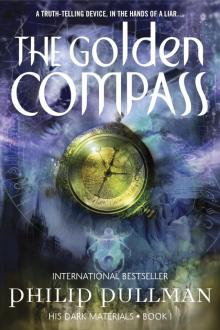 The Golden Compass
The Golden Compass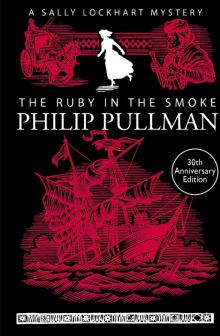 The Ruby in the Smoke
The Ruby in the Smoke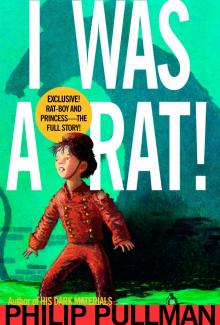 I Was a Rat!
I Was a Rat!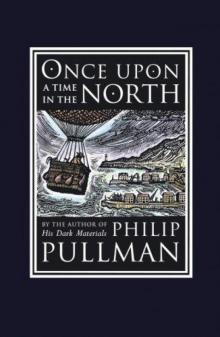 Once Upon a Time in the North
Once Upon a Time in the North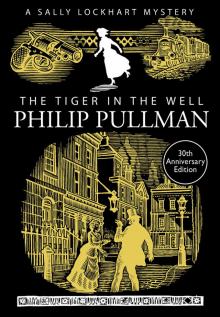 The Tiger in the Well
The Tiger in the Well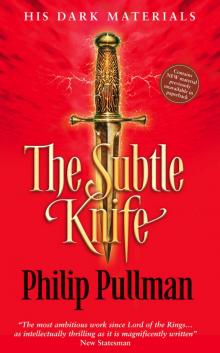 The Subtle Knife
The Subtle Knife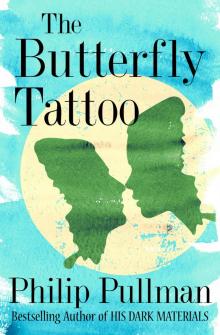 The Butterfly Tattoo
The Butterfly Tattoo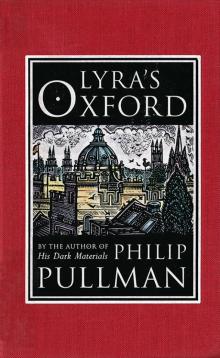 Lyra's Oxford
Lyra's Oxford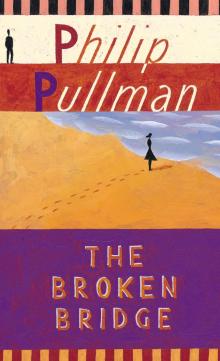 The Broken Bridge
The Broken Bridge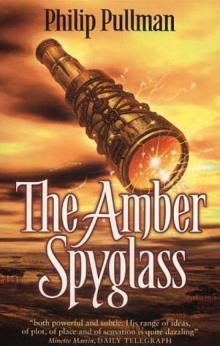 The Amber Spyglass
The Amber Spyglass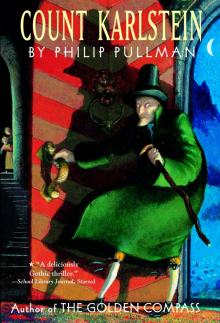 Count Karlstein
Count Karlstein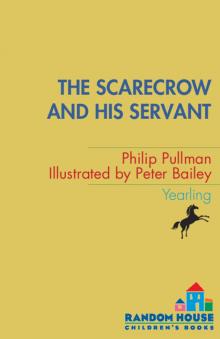 The Scarecrow and His Servant
The Scarecrow and His Servant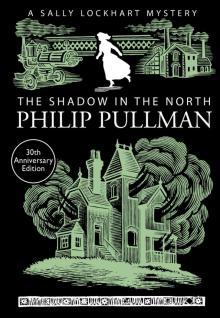 The Shadow in the North
The Shadow in the North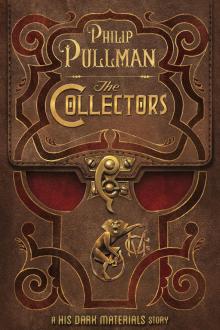 The Collectors
The Collectors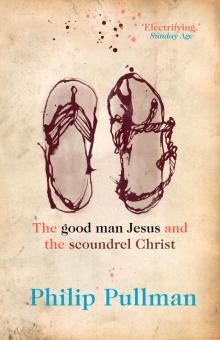 The Good Man Jesus and the Scoundrel Christ
The Good Man Jesus and the Scoundrel Christ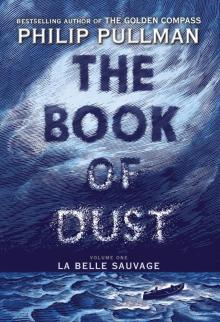 La Belle Sauvage
La Belle Sauvage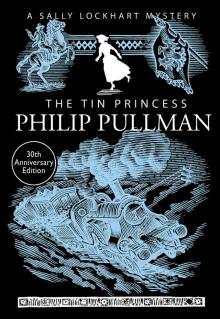 The Tin Princess
The Tin Princess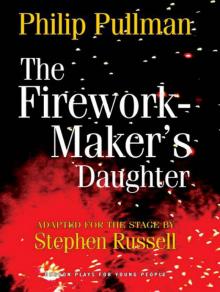 The Firework-Maker's Daughter
The Firework-Maker's Daughter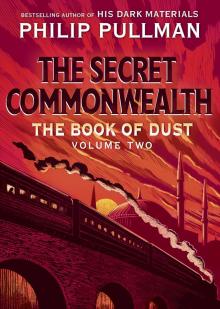 The Book of Dust: The Secret Commonwealth (Book of Dust, Volume 2)
The Book of Dust: The Secret Commonwealth (Book of Dust, Volume 2)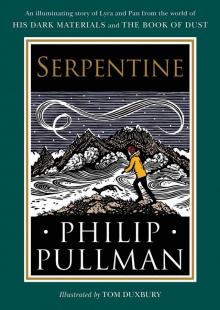 Serpentine
Serpentine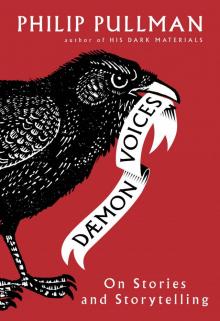 Daemon Voices
Daemon Voices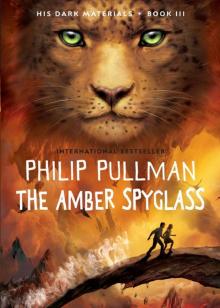 The Amber Spyglass: His Dark Materials
The Amber Spyglass: His Dark Materials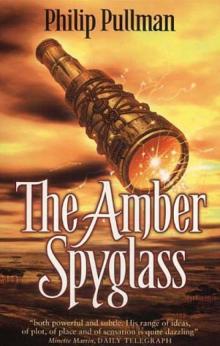 The Amber Spyglass hdm-3
The Amber Spyglass hdm-3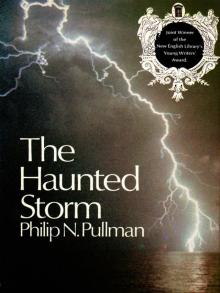 The Haunted Storm
The Haunted Storm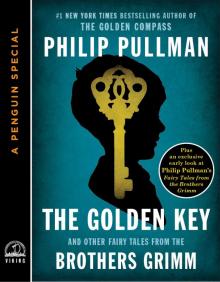 The Golden Key
The Golden Key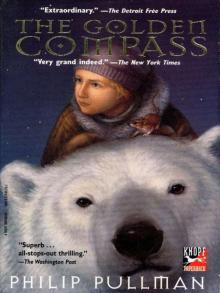 His Dark Materials 01 - The Golden Compass
His Dark Materials 01 - The Golden Compass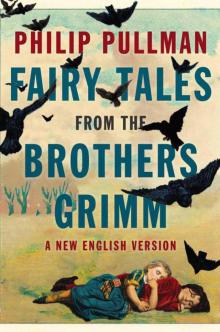 Fairy Tales from the Brothers Grimm: A New English Version
Fairy Tales from the Brothers Grimm: A New English Version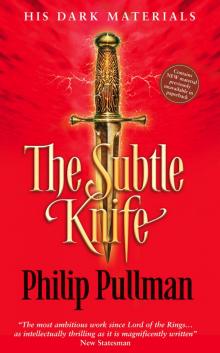 His Dark Materials 02 - The Subtle Knife
His Dark Materials 02 - The Subtle Knife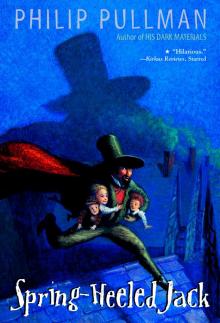 Spring-Heeled Jack
Spring-Heeled Jack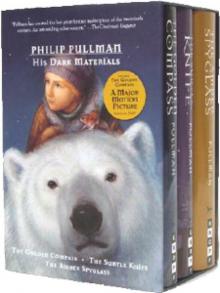 The Golden Compass hdm-1
The Golden Compass hdm-1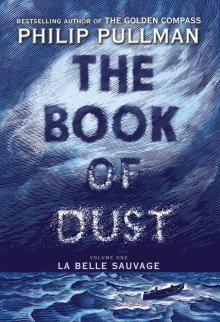 The Book of Dust, Volume 1
The Book of Dust, Volume 1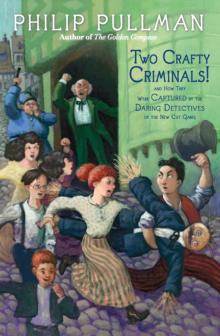 Two Crafty Criminals!
Two Crafty Criminals!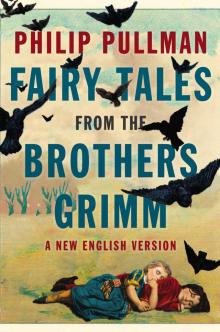 Fairy Tales from the Brothers Grimm
Fairy Tales from the Brothers Grimm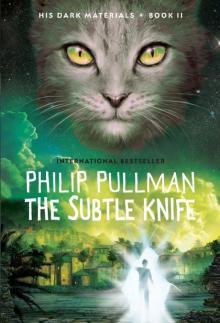 The Subtle Knife: His Dark Materials
The Subtle Knife: His Dark Materials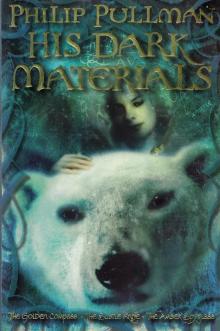 His Dark Materials Omnibus
His Dark Materials Omnibus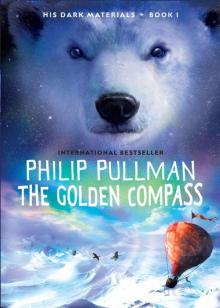 The Golden Compass: His Dark Materials
The Golden Compass: His Dark Materials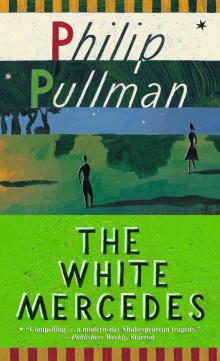 The White Mercedes
The White Mercedes